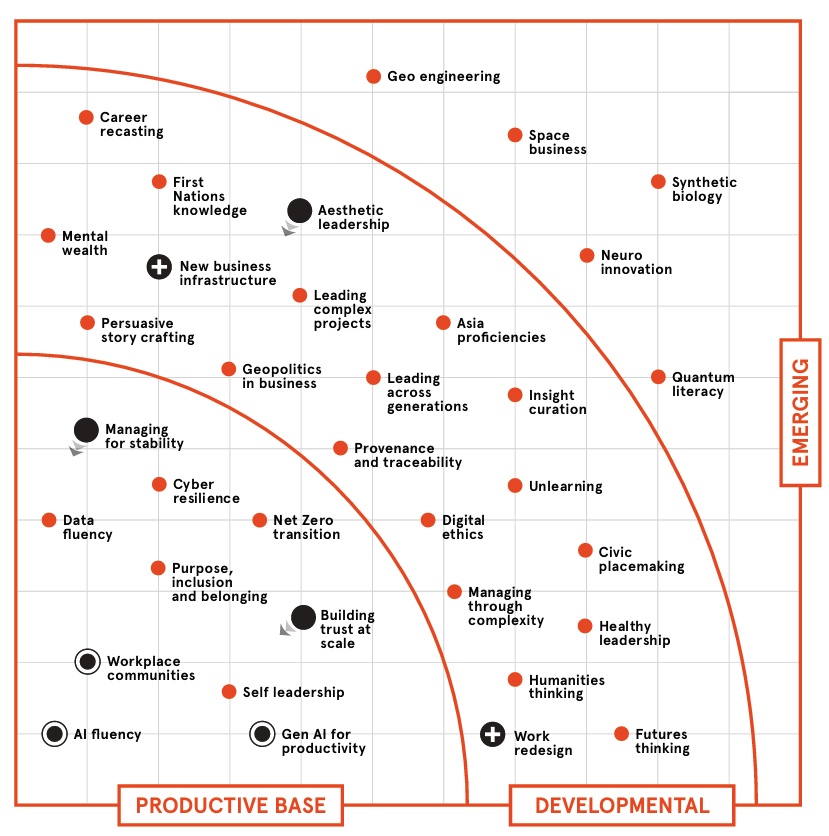The Energy Shift: Trends, Skills, and Regulatory Trends for Digital Sustainability in 2026
2026 Skills Horizon, University of Sydney Business School
The 2026 Skills Horizon is out and with an IT Digital Sustainability I want to cast an eye over what it revels for the 1 million IT workers in Australia.
Trends and Skills Related to Digital Sustainability and Energy
The 2025 Skills Horizon report highlights that the accelerating digital economy is inextricably linked to energy infrastructure, creating new strategic necessities for IT leaders.
This is categorised under The Energy Shift:
Explosion of Data Centre Demand: The promise of AI is tied to enormous demands for new data centre infrastructure, which have fast become the biggest driver in new energy demand.
Compute Power as a Critical Resource: For organisations, compute power is emerging as one of this decade's most critical resources, requiring a potential surge in capital outlays.
The New Business Infrastructure Challenge: IT leaders must develop the skill of New business infrastructure (an Unexpected Emerger skill). This means understanding:
How the economy now lives and works in data centres.
The link between energy, digital growth, and the transition away from hydrocarbons.
Dependencies, risk, and cost exposure resulting from these transitions.
The crucial point is that data centre capacity is often measured in energy units.
Data and Energy Sovereignty: The Energy Shift requires IT leaders to address new questions of risk, control, and data and energy sovereignty.
Response to New Climate Disclosure Regulation
New climate disclosure regulations stem from The Accountability Shift, which demands that leaders rethink accountability beyond their own organisation to the systems level.
System-Level Accountability: Regulation and sustainability demands require leaders to shift perspective from the organisation to the broader ecosystems they are embedded in, even if they don't control them.
Focus on Provenance and Traceability: The concept of the "provenance economy" means leaders need awareness of their full supply chain to track the scope and volume of carbon emissions (including those of suppliers and customers) and the impact of products on the natural, social, and economic worlds.
Mandatory Scope 3 Emissions Reporting: Compliance requirements now necessitate reporting on indirect Scope 3 emissions, which typically represent about 70% - 80% of an average corporate carbon footprint.
Required Skills for Compliance: IT leaders must cultivate two key skills related to regulation and sustainability (part of 'Solving problems of scale'):
Net Zero Transition: This is the ability to understand the strategic risk implications, reporting requirements, and frameworks for setting and managing decarbonisation goals.
Provenance and Traceability: This skill involves comprehending regulatory requirements and the need to establish provenance. It also requires the ability to navigate the complexities of accounting in multi-stakeholder ecosystems and building assurance for automatic data capture, secure storage, and transmission.
2026 Skills Horizon, University of Sydney Business School
Workforce and Productivity Trends for IT Leaders
In the Australian context, IT leaders must manage the consequences of the Technology Shift (AI) and the push for efficiency, which impacts the structure and skill development of the workforce.
AI and Workforce Structure: Australian executives report high expectations that AI will impact job roles: 69% of Australian executives say AI will absorb entry-level work. This creates the fundamental tension of the Efficiency vs Expertise Clash.
Developing Future Expertise: Leaders face the dilemma of developing expertise in junior workers when AI picks up entry-level tasks. They must find ways to achieve efficiency gains with AI without degrading the human expertise that provides market differentiation.
Urgent Work Redesign: The skill Work redesign has emerged faster than anticipated, requiring leaders to rethink work processes beyond individual or team levels. This means balancing automation with human expertise and determining the future shape of the workforce and associated careers and KPIs.
Addressing the AI Skills Gap: Australian businesses are struggling to find the necessary AI talent, with 75% reporting difficulties.
Tech Fluency as a Foundation: IT leaders and their teams must master foundational technical skills to put technology to work. The report emphasises skills within the 'Speaking the language of tech' Blob, including:
AI Fluency (understanding strategic implications and challenges).
Gen AI for Productivity (practical application for performance).
Data Fluency (understanding data as a strategic asset).
Cyber Resilience (preparedness for inevitable incidents, not just prevention).
Digital Ethics (navigating complex ethical considerations of data use and algorithmic decisions).
Quantum Literacy (understanding the principles and potential applications of disruptive quantum technologies).
References
University of Sydney Executive Plus 2026 Skills Horizon https://plus.sydney.edu.au/horizon/

